Dark Series
The exhibition Co-Workers: Beyond Disaster takes the perspective of a common work as a way to re-think our ways to build and inhabit our environment. The exhibition gathers a few stories that embody different ways of reacting to the troubled situation we are living in, and proposes alternative modalities to relate with the world.
The show considers disaster as a juncture where a new sense of collectivity arises against tragedy. A time of upheaval. Following this notion, the Dark Series – its public programme - embody a transitional moment where to envisage substitutes, choices, loopholes, opportunities and dilemmas related to the climate change crisis. The Dark Series intends to look at not only environmental aspects but also economical, social and political implications of this problem, in order to create a transdisciplinary platform that can encapsulate its manifold resonances.
The programme is rooted in a terrain where it is possible to imagine a geography, a climate, a novel ecology, and think of new futures by comprehending the issues that affect our present. The Dark Series unravels in multiple shapes and in different timespans by means of narrative techniques, artistic research, science-fiction, talks, and assemblies.
Follow the schedule of Dark Series in the Calendar section, as well as the documentation of events on Dark Series Tumblr.
Curated by Garance Malivel & Barbara Cueto
Assemblies
Saturday November 28 at 3pm30
Assembly - For a Sustainable Future: Art and Culture(s) Facing Environmental Crisis
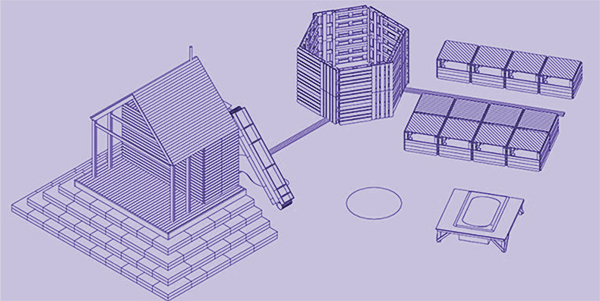
In his book Technics and Civilization published in 1934, the historian and philosopher Lewis Mumford already called for – and hoped to see realised - a “dynamic equilibrium” regarding the human exploitation of the environment, the production of the consumer goods, or even the conservation of natural resources. On the eve of the opening of the COP21 in Paris, which aims at establishing an international binding agreement to limit the climate warming largely due to the excessive extraction and burning of fossil fuels as well as to deforestation, it has to be said that the equilibrium that Mumford called for was not achieved.
Outside of the discussions that will take place in Le Bourget, the second assembly of Dark Series proposes to look into other strategies of reflexion and action, in other manners of showing and negotiating that could allow us to re-think the development of our society and our environment. What could be the role of artistic research and of cultural practices in this context? At the crossroad of art, activism and research, the participants of this assembly will present their proposals for a more sustainable development, to make visible the urgency of environmental issues and to conceive unifying actions at the heart of civil society.
Participants:
Sacha Kagan (Ph.D) is Research Associate at Leuphana University Lüneburg (Germany), Principal Investigator at the transdisciplinary research project "The City as Space of Possibility". He is the Chair of the Research Network "Sociology of the Arts" at the European Sociological Association (ESA RN 2).
Marie Velardi, artist, based in Geneva. After studying in Milan, Brussels, Lausanne and Geneva, she participated in 2013-14 to the Programme of experimentation in arts and politics at Sciences Po, Paris. Through her research and practice, she aims at constructing a memory of the future.
Collective Disaster is a young, international and multidisclipinary network, interested in exploring new possibilities of collaboration and in working on ways out of disasters.
Isabelle Frémeaux and John Jordan co-founded the collective Laboratory of Insurrectional Imagination in which art, activism and permaculture intersect. http://labofii.net. The labofii and others have organised the Climate Games, the world’s largest Disobedient Action Adventure Game, that will unfold during the COP21, in Paris and around. climategames.net / facebook : climate games
//
Saturday January 9, 2016 at 3pm30
Assembly - Environmental Justice
Organized in collaboration with Françoise Vergès, Chair Global South(s) at Collège d’études mondiales de la Fondation Maison des sciences de l’homme.
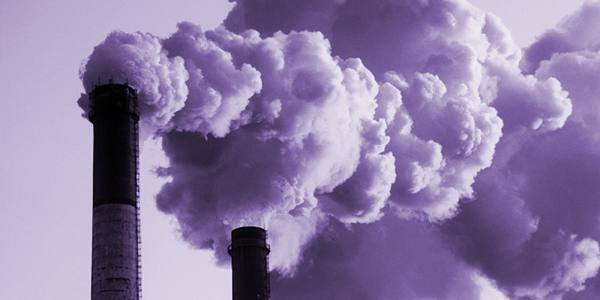
A cartography of polluting industries, intensive agriculture, intensive mining, nuclear power plants, ect show the flagrant inequalities that exist within the geographical distribution of the polluting industries, often built near impoverished or minority areas. This assembly will focus on the consequences of these risky activities on the environment and on their repercussions in terms of public health. Through a series of case studies, the participants will address the progressive identification and recognition of certain sources of toxic pollutions, the North/South divide and the frequent colonial or neo-colonial origins in the unequal access to a healthy environment, as well as possible tools, notably legal ones, to mitigate such inequalities.
Participants:
Bruno Barrillot (Co-founder of the Observatoire des armements)
Bronwyn Lay (Lawyer)
Jade Lindgaard (Journalist)
Uwe H. Martin (Photojournalist)
Luc Multigner (Director of Research, Inserm)
Jacopo Ottaviani (Journalist)
Françoise Vergès (Political Scientist, Chair of Global South(s) at Collège d’études mondiales of Fondation Maison des sciences de l’homme)
Alexis Zimmer (PhD in Epistemology and History of Sciences and Techniques)
Talks
Friday November 20 at 7pm
Urban Development & Climate Change in the Global South
Paulo Tavares (Architect and Urbanist) & Justine Liv Olausson (Urbanist and Political Scientist).
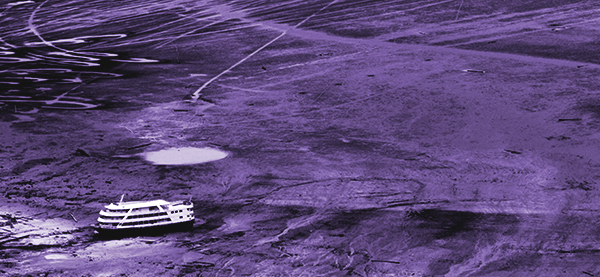
As part of the public programme Dark Series unfolding during the exhibition Co-Workers: Beyond Disaster, this conversation between architect Paulo Tavares and urbanist Justine Liv Olausson will bring together different perspectives on global warming, here questioned as a consequence of the industrial and imperialist culture of Northern countries, that first affects the countries of the Global South. Broaching the political violence which underlines this matter, Paulo Tavares and Justine Liv Olausson will elaborate on the effects generated both in some urban and non-urban areas of Global South. The talk will pivot around how global warming crisis affects the development of the communities and the possible ways for them to adapt and deal with this situation.
Paulo Tavares is an architect and researcher based in Quito/São Paulo.
His work has been exhibited in various venues worldwide, most recently at BAK - basis voor actuele kunst, ZMK Center for Art and Media, Haus de Kulturen der Welt, PROA-Buenos Aires, and Taipei Biennial. Tavares has collaborated with many international publications and has lectured widely at different contexts and locations, including ETH-Zurich; Pérez Art Museum Miami; Haus de Kulturen der Welt (Berlin); São Paulo Biennale, Ireland Biennale and Mercosul Biennale. He teaches design studio and spatial theory at the School of Architecture, Design and Arts of the Pontificia Universidad Católica del Ecuador in Quito, and is currently a visiting scholar at the School of Architecture at Princeton University. Prior to that, Tavares taught at the Centre for Research Architecture – Goldsmiths, University of London, acting as the coordinator of the MA programme.
Justine Liv Olausson is a research assistant in the Architecture Design Innovation Program (ADIP) at the TU Berlin where she is currently teaching the theory seminar Contested Properties. Fields informing her work include Social and Political Science (BA Malmö University 2006-09), Photography (Spéos Institut de Photographie 2009-10), Film (Assistant Director 2011-12), International Guidelines on Urban and Territorial Planning (UN-Habitat 2012-13) and Sustainable Urban Planning and Design (MSc KTH Royal Technical University 2012-14). She is a member of the Society for Artistic Research (Bern). Her current research areas are cooperative communities and spaces of commoning, with a particular interest in land transformations, social movements and rapidly urbanizing cities of the Global South. Recently she contributed to the publications Berlin Transfer: Learning from the Global South (2015), Hybrid Modernities (2015), and Lo-res: Architectural Theory, Politics and Criticism (2015).
//
Friday November 27 at 7pm
Deviant Utopian Narrations
A conversation with Alice Carabédian (PhD Student in Political Philosophy at CSPRP, centre de sociologie des pratiques et des représentations politiques) in the framework of the Speculative Thinking Series* conceived with Émilie Notéris.
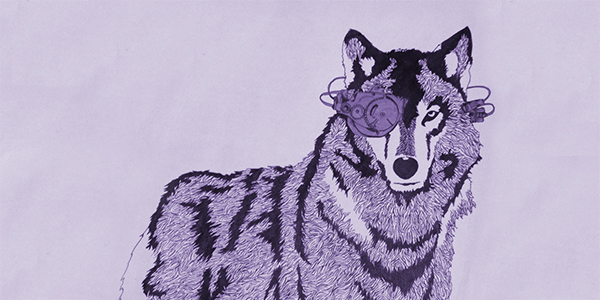
I think we learn to be worldly from grappling with, rather than generalizing from, the ordinary. I am a creature of the mud, not the sky. (Donna J. Haraway, When Species Meet, University of Minnesota Press, Minneapolis, 2008, p.3)
Far from catastrophist stories about the future of human being or from science-fiction post-apocalyptic visions of our planet, the Culture series by Scottish author Ian M. Banks offers an original and deeply political reflexion about the connection between humanity, artificiality and environment – redrafting with irony the traditions of utopia and space-opera. By presenting the relation to alterity from the angle of the encounter, proximity and emancipation – rather than that of domination, colonisation or utilitarianism – Ian M. Banks’s science fiction invites us to subvert our viewpoint, to decenter ourselves, and to imagine an unprecedented relationship to the world: a deviant utopian relation.
Alice Carabédian is a PhD student at the Laboratory for Social and Political Change at Denis Diderot University. She holds a Master in Modern Literature as well as one in Political Philosophy. Carabédian obtained a doctoral contract at LCSP for continuing her research on science fiction literature, seen as a laboratory of though and a medium to problematise contemporary political issues. Her thesis proposes a re-reading and a re-conceptualisation of the political and critical utopia through Banks’s science fiction oeuvre. She is the co-founder of the “Archipel des Devenirs - Centre de recherche sur l’utopie” (Archipelago of Futures – Centre for Research on Utopia).
//
Wednesday December 16 at 7pm
Imagining the Post-Disaster
Conversation with Mathieu Potte-Bonneville (Philosopher) and Pierre Zaoui (Philosopher) in the framework of the Speculative Thinking Series* conceived with Émilie Notéris.
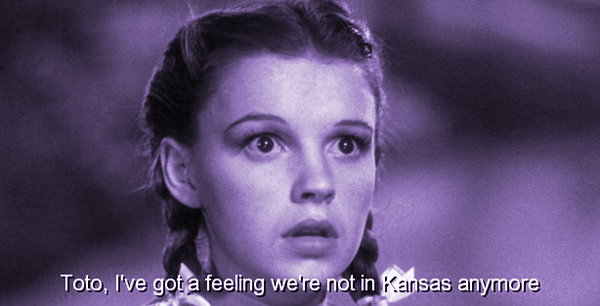
The time that follows catastrophes seems doomed to be unthinkable: we can’t imagine it neither before (the particularity of a catastrophe is to thwart our anticipations); neither during (while we are too busy surviving it); nor after, while we are shunted between stupor, repetition, and compulsion. Should we then give up on stimulating imagination, to only rely on the comfort of a still hurt sensibility or on the prudence of reason? Beyond the metaphors of the unpresentable, of the desert or fields of ruins, what uses and fictions remain possible? From the classical theories to the contemporary fictions, we will investigate if and how the imagination could, after the storm, help shaping the memory and the future.
Associate, PhD in Philosophy, Mathieu Potte-Bonneville is senior lecturer at the École Normale Supérieure at Lyon. Former president of the Collège International of Philosophy and co-founder of the tri-monthly magazine Vacarme, he has notably published Michel Foucault, L’inquiétude de l’histoire (PUF, 2004), Amorces (Prairies ordinaires, 2004), D’Après Foucault (avec P. Artières, réed. "Points essais", 2013). He is in charge of “Ideas and Knowledges” at Institut Français, he has recently coordinated the collective book Game of Thrones – Série Noire (Prairies ordinaires, 2015), and he often collaborates with the programme La Grande Table at France-Culture.
Pierre Zaoui teaches Philosophy, Literature and Contemporary art at the University Paris Diderot. He is has notably written Spinoza, la décision de soi (Bayard, 2008), La Traversée des catastrophes (Seuil, 2010) and La Discrétion, ou l’art de disparaître (Autrement, 2013). He is member of editorial board of the magazine Vacarme.
//
Friday December 18, from 4 to 7pm and Saturday December 19, at 3:30pm
A.P.E. - Art, Philosophy & Ecology / Seminar & Conversation with Timothy Morton
Bétonsalon – Centre for Art and Research has the pleasure to host a double event with philosopher Timothy Morton to investigate the connections between art, philosophy and ecology.
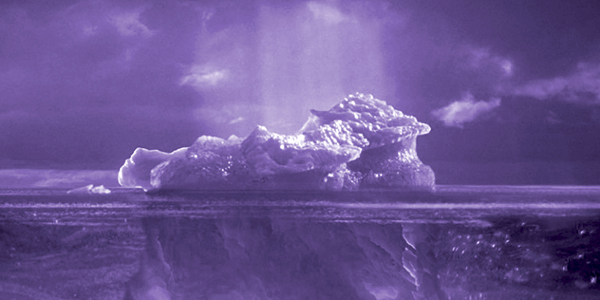
Timothy Morton has become a fundamental figure in the contemporary philosophical thought and one of the referents of the object-oriented ontology. He proposes a unique analysis of the entanglement between nature and civilization asserting that in order to develop a properly ecological view, we should relinquish the idea of nature itself. One week after the end of COP 21 in Paris, this twofold event will further elaborate on the repercussions of the global warming crisis, this time from the perspective of the object-oriented thought.
> Friday December 18, from 4 to 7pm: Seminar (by registration only)
On the 18th of December, Timothy Morton will give a seminar to further explain the concepts he developed in recent years, such as Dark Ecology, Hyperobjects, or the Mesh. The seminar will be adapted and personalized with the participants.
Due to a limited number of places this event requires registration through the following form. The deadline to submit your registration is on the 11th of December, and the confirmations will be communicated by the 14th of December.
> Saturday December 19, at 3:30pm: Public conversation with Timothy Morton
The following day, on the 19th of December, Timothy Morton will give a public talk about the interconnexions between art, philosophy and ecology. More information will be coming soon.
Timothy Morton is the Rita Shea Guffey Chair in English at Rice University. He is the author of Nothing: Three Inquiries in Buddhism and Critical Theory (Chicago, forthcoming), Hyperobjects: Philosophy and Ecology after the End of the World (Minnesota, 2013), Realist Magic: Objects, Ontology, Causality (Open Humanities, 2013), The Ecological Thought (Harvard UP, 2010), Ecology without Natur (Harvard, 2007), seven other books and one hundred and twenty essays on philosophy, ecology, literature, food and music. He blogs regularly at www.ecologywithoutnature.blogspot.com.
Free entrance. Both events will be held in English.
//
Wednesday January 13, 2016 at 7pm
Contemporary Acoustic Ecology
A conversation with Stéphan-Eloïse Gras (PhD in Information and Communication Sciences and in Aesthetics), and Maxime Boidy (PhD in Sociology and Postdoctoral researcher at Labex Arts-H2H) in the framework of the Speculative Thinking Series* conceived with Émilie Notéris.
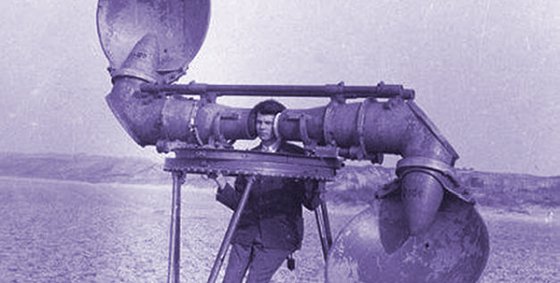
After the nineties, acoustic ecology and more generally the sound experience as such have been subject of a growing interest, either from the perspective of its social history, its technical supports, or its philosophical issues. A field – which is certainly not homogeneous and which can’t be reduced to what we call sound studies – has been established through works such as those of James H. Johnson (Listening in Paris, 1996), Peter Szendy (Écoute, une histoire de nos oreilles, 2001), Jean-Luc Nancy (Listening, 2007), Jonathan Sterne (The Audible Past, 2003) and more recently Martin Kaltenecker (L’Oreille divisée, 2010), Michael Bull (Sound Studies, 2013) or Veit Erlmann (Reason and Resonance, 2014).
This recent attention is indicative of the transformations undergone by our contemporary practices as artists, musicians, musicologists, researchers, scientists, music lovers, internet users…, in short: as listening subjects in general. How has the internet and more generally digital technology – that is to say the vast computerisation of experiences and large-scale socialisation of computer science – altered the contemporary acoustic ecology?
At the crossroads of sound and software studies, this conversation intends to highlight political and aesthetic landmarks in order to think of a digital regime for acoustic ecology.
Stéphan-Eloïse Gras currently works on her PhD in Information and Communication Sciences (GRIPIC_CELSA- Paris Sorbonne) and in Philosophy (LLCP-Paris 8) about « Listening online : mutations in the musical spaces in Internet », under the direction of Nicole d’Almeida and Patrick Vauday. Musician, she is interested in the digital mediation of musical listening in new technical, aesthetic, industrial and political contexts, under the perspective of the critical theories of subjectivities. She was invited researcher at Brown University and at New York University, and she is currently in charge of the prospective and digital cooperation of Institut Française.
Maxime Boidy is currently a postdoctoral researcher at Labex Arts-H2H at the University Paris 8 Vincennes-Saint Denis. Translator of A history of the sound modernity by Jonathan Sterne (La Découverte/Philharmonie de Paris, collection The music street : sound culture, 2015) he has recently co-directed the 11th issue of the review Poli-Politic of the Image dedicated to Sound Politics (2015).
//
Saturday January 16, 2016 at 3pm30
Film-making as History-making
A conversation with Jasmina Metwaly and Philip Rizk (artists), and Louly Seif (editor and filmmaker).
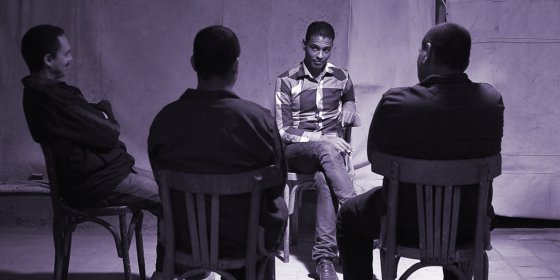
Bétonsalon – Centre for Art and Research welcomes artists Jasmina Metwaly and Philip Rizk, as well as editor and filmmaker Louly Seif, for a conversation around their film Out on the Street, screened in the exhibition Co-Workers till January 30. The film features nine non-professional actors from a working class neighborhood in Cairo performing the events around the privatization of a public factory. Out on the Street interlaces footage from an acting workshop carried out with the workers, with scenes the same workers performed - both experienced confrontations at work, with the police, or imagined scenarios of what might have happened.
The conversation between the two directors and editor will go in depth into how the process based-approach taken during the filming continued into the period of montage. While dealing with the real flesh of life stories, the making of Out on the Street engages with the realm of make-belief and questions how to fictionally re-constitute the past. The film-makers will discuss the relationship of film-making to history-making, in this case as a group of three in the editing suite.
Philip Rizk is a filmmaker and writer based in Cairo, Egypt. He studied Philosophy and Anthropology and has been working with video since 2009. Jasmina Metwaly is a visual artist and filmmaker based in Cairo, co-founder of the 8784 project and a founding member of Mosireen video collective. Together they directed the feature film Out on the Street, which premiered at the Berlinale 2015 and was part of the German Pavilion at the Venice Biennale 2015.
Louly Seif is a freelance film editor and filmmaker born in Alexandria, Egypt. In 2011, she pursued a masters in Aural and Visual Culture at Goldsmiths College in London and with multiple interests in editing, analog filmmaking, grading and sound recording/design, she enjoyed being a freelancer ever since. She is currently completing a postgraduate course in colour grading at the Deutsche Film- und Fernsehakademie in Berlin (DFFB).
Free entrance. The talk will be held in English.
//
Saturday January 23 at 3pm30
Eclogitisation, or the strong process of amnesia
A talk with Melissa Dubbin, Aaron S. Davidson (artists), Maxime Guitton (curator), and Violaine Sautter (geologist).
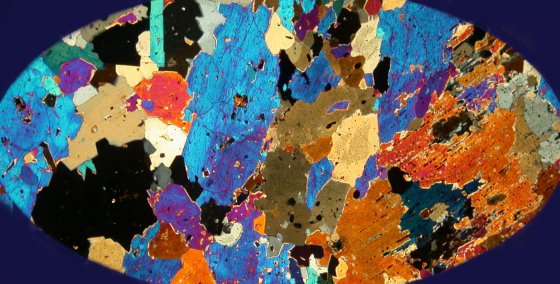
Drawing from their installation on view in the exhibition Co-Workers: Beyond Disaster, artists Melissa Dubbin and Aaron S. Davidson, in conversation with geologist Violaine Sautter and curator Maxime Guitton, will dwell on what we can learn from time taken at geological scale and from the slow transformation process of metamorphic rocks. Taking inspiration from J.W. Dunne’s An Experiment with Time (1927) and George Kubler’s The Shape of Time (1961), the talk will discuss how objects, and stones in particular, can transmit what they have witnessed or forecast what is to come. This open conversation with geologist Violaine Sautter, here cast as the “geolinguist” – in reference to a short story in which science fiction author Ursula K. Le Guin imagines a character able to read “the wholly atemporal, cold, vol-canic poetry of the rocks” * – will examine how the language of minerals can shed light on our understanding of what we now call the Anthropocene.
* “The Author of the Acacia Seeds, and Other Extracts from the Journal of the Association of Therolinguistics”, 1974, originally published in The Compass Rose, New York: Harper and Row, 1982.
Melissa Dubbin and Aaron S. Davidson have co-authored a body of works producing forms, objects, images and experiences, equally incorporating the mediums of photography, video, sound, performance, installation, drawing, sculpture and artists books since they began working together in 1998. Recent solo exhibitions include Treize, Paris (2014); Audio Visual Arts (AVA), New York, NY (2013); Henie Onstad Kunstsenter, Høvikodden, Norway (2012); and Nýló, The Living Art Museum, Reykjavik, Iceland (2012). Recent group exhibitions include Some Artists’ Artists at Marian Goodman Gallery, New York (2014); The Artist’s Institute, New York, NY (2014); Art of Its Own Making at The Pulitzer Foundation for the Arts, St. Louis, MI (2014); The String and the Mirror, Lisa Cooley, New York, NY (2013); Alchemical, Steven Kasher Gallery, New York, NY (2013); and Sound Spill, Zabludowicz Collection, New York, NY (2013).
Maxime Guitton is managing the department of creation grants at Centre national des arts plastiques (CNAP) in Paris. Since 2003, he has been developing free-lance music programming activities in a variety of independent venues and artistic institutions (Le BAL, CAPC, Centre Pompidou, etc.). He has been assisting composer Eliane Radigue between 2009 through 2011. His research fields in music have led him to be invited by art schools and art centres for classes, workshops, lectures and listening sessions (ECAL, Ecole du Magasin, INHA, Bétonsalon, Musée de la Main UNIL-CHUV, Laboratoires d’Aubervilliers, Meetfactory, etc.). In 2014, he curated Melissa Dubbin and Aaron S. Davidson’s solo exhibition, a drusy vein (Treize, Paris). Along with Benoît Hické, he completed in 2015 the programming of Montagnes: la terre exhaussée, a cycle of film screenings, lectures and acousmatic diffusion about mountains at the National Museum of Natural History (Paris).
Violaine Sautter is a geologist working at the National Museum of Natural History in Paris (MNHN), a research director at the National Centre for Scientific Research (CNRS), and co-investigator with the Laser ChemCam aboard Curiosity, NASA’s Mars Science Laboratory (MSL). She conducted research for several years on diamonds in the Earth’s deep interior. In 1990 Violaine Sautter discovered the deepest mineral ever found on Earth at that time, a garnet coming from a depth of more than 300km. She was awarded the Bronze medal at CNRS for this discovery, an award dedicated to findings by young researchers. In 2001, she was an organizer of the exhibition and co-author of the book Diamonds: In the Heart of the Earth, in the Heart of Stars, at the Heart of Power. By the beginning of 2000, she had begun to study Martian meteorites. Recognized for her research in this field, Violaine Sautter was selected to continue her work within NASA’s MSL on board the rover Curiosity.
Free entrance. The talk will be held in English.
Workshops
October 2015 - January 2016
Seule contre l’Univert
First Session : Saturday October 24
Second Session : Thursday November 12
Evening Restitution : Friday January 29 from 6pm to 8pm
Conceived with Eva Barois De Caevel (curator)
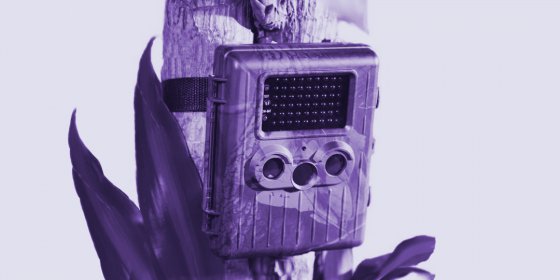
« Seule contre l’Univert » is not an artwork, it is a free political activity to do in our spare time, alone and in a group, episodically or for four months. « Seule contre l’Univert » is a project openly paranoid, designed in order to think about the notion of activism at the individual level and at the network age. « Seule contre l’Univert » will approach through the back door (the one of a shared garden – « l’Univert » — of the 18th arrondissement of Paris) notions as ecofeminism, social justice in urban environment, story-telling, politics of coalition, method of cross-sectional analysis, social ecology, the fight against the State’s powerful narration and the death of the vernacular.
//
Saturday October 31 at 3pm30 and Wednesday December 3 at 7pm
Creative writing workshop dedicated to restorative fiction
Conceived with Émilie Notéris (writer).
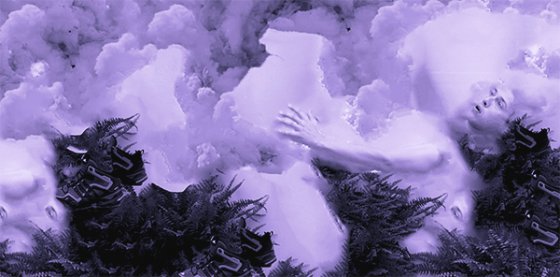
In the framework of the exhibition Co-Workers: Beyond Disaster, Émilie Notéris initiates a creative writing workshop dedicated to restorative fiction. The author will focus on how to develop a positive and restorative narration, from a "cloud" of keywords arising at the edge of the COP 21 (United Nations Conference on Climate Change), put in perspective with pioneer science-fiction texts. The workshop proposes a change of outlook in order to produce a “decolonization of thought”, as anthropologist Eduardo Viveiros de Castro puts forth. At the end of the workshop a journal compiling the texts written in this context will be made by the participants.
Additionally, a series of conversations conceived by Emilie Noteris will punctuate the exhibition; they will offer to develop a new positive ecological and post-disaster outlook in literary, philosophic and acoustic fields.
Émilie Notéris is a text worker, born in 1978. A science fiction author (Cosmic trip, 2008; Séquoiadrome, 2011) and essay writer (Fétichisme postmoderne, 2010), she also works as a translator (Marshall McLuhan, Sudipta Kaviraj, Gayatri Chakravorty Spivak, Slavoj Zizek, Hakim Bey, Malcolm Le Grice). She contributed to a collective publication dedicated to the series Game of Thrones (Paris: Prairies Ordinaires, 2015) and is currently preparing a book on science fiction and queer theory. In November 2015, she conceives the programme EcoQueer that will open the Rencontres Bandits-Mages in Bourges (France).
//
Tuesday November 10 from 10am to 7pm
Disasters Room: Lessons from Crisis Management and Post-Catastrophe Recovery
Conceived with Fernando García-Dory (artist and agroecologist), in partnership with Imago Mundi Foundation (Cracow) in the framework of the programme Place Called Space.
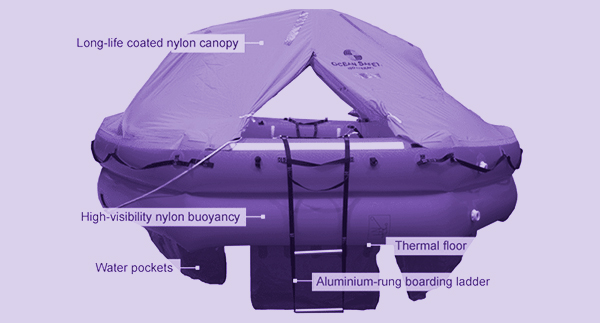
The workshop will draw connections between different levels of crisis, from the psychological to the specific impacts at city or regional level, to the systemic. It will intertwine fields from poetry to biology and paleontology, from public relations to architecture and sustainable engineering, and from theory of chaos to tactics of radical antagonism for disturbance escalation in revolutionary processes. The participants will look at the stages of pre-crisis, emergency, crisis management, and post-catastrophe recovery, through a collective creative endeavour also fed by an exchange with experts from these fields who will give specific inputs. What is resilience and how to build it up? What imaginaries do these new narratives of apocalypse allow and how are they collectively addressed?
Fernando García-Dory´s (b. 1978) work engages specifically with the relationship between culture and nature now, as manifested in multiple contexts, from landscape and the rural, to desires and expectations concerned with identity, through to (global) crisis, utopia and the potential for social change. He studied Fine Arts and Rural Sociology, and now prepairing his PhD on Agroecology. Interested in the harmonic complexity of biological forms and processes, his work addresses connections and cooperation, from microorganisms to social systems, and from traditional art languages such as drawing to collaborative agroecological projects, actions, and cooperatives.
//
Every Thursday from 12 November 2015 to 28 January 2016 (except 24th and 31st of Dec)
Cum Venies Laetabor
Workshop with a group of students from École Nationale Supérieure d’Arts de Paris-Cergy.
Led by Boris Achour (artist), François Bon (writer), Jeff Guess (artist), and Judith Perron (choreographer), teachers at ENSAPC.
(For Students only)
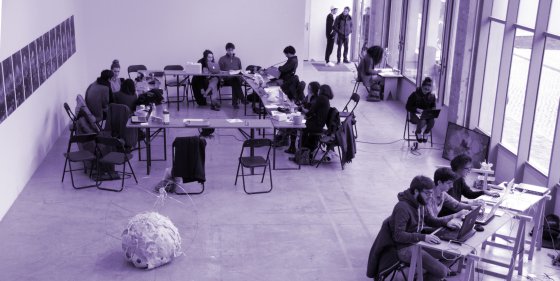
//
October 2015 - January 2016
Co-Workers: Writing beyond the walls
Creative Workshop Poissy Prison / Paris Diderot University
Directed by Julie Ramage
January 27, 2016: Launch of the publications conceived in the framework of the workshop and presentation of the works produced in 2014 and 2015. Opening from 5 to 7pm.
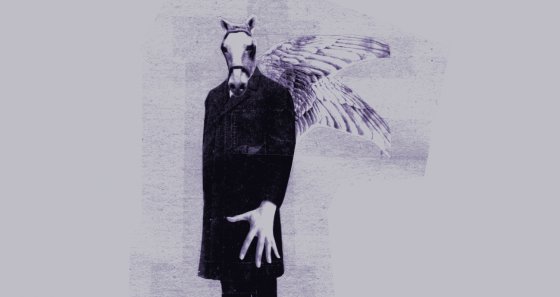
In the framework of the exhibition Co-Workers: Beyond Disaster several inmates from the prison of Poissy (Paris Region) who are part of the student program « section des Etudiants Empêchés » from Paris Diderot University, were invited to do a collaboration with the writing workshop from the Diderot University’s BA in French Language and Literature. Through a series of sound experiments, the participants discussed the notion of disaster, its meanings, its potential narrations and enactments for one another. That led them to produce throughout the semester a radiophonic collective piece. The notion of voice is tightly gripped between law connotations –as its analysis can become an element of proof in legal proceedings– and its power as a flow circulating with its own rules inside, as outside, the prison space. The voice is reloaded within its resistance potential, in search of new ways to communicate.
This project was organised in the framework of the Ateliers Lettres at UFR Lettres, Arts, Cinéma, as well as of the Section des Etudiants Empêchés at Paris Diderot-Paris 7 University. It was produced thanks to the support of the accompaniment service for innovative pedagogies and digital education at Sorbonne Paris Cité (SAPIENS-USPC).
Share